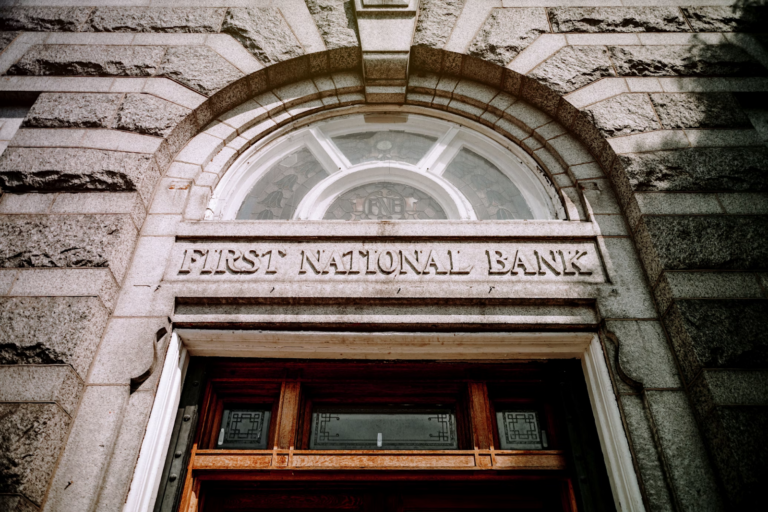Would you like to establish a new business or improve your current business banking arrangements?
Selecting the appropriate business bank account represents a core decision that will affect your daily operations for many years. The vast number of nearly 100 banks alongside more than 800 fintechs in Australia creates an overwhelming array of choices for customers.
But here’s the thing…
Picking an inappropriate bank account may lead to thousands in avoidable fees while generating accounting issues and hindering business growth potential.
What You’ll Uncover:
- Why Your Business Needs a Dedicated Bank Account
- Essential Features to Look for in Business Banking
- Understanding Business Bank Account Fees
- Comparing Business Savings Account Interest Rates
- Documentation Required to Open a Business Account
- How to Choose the Right Bank for Your Business
Why Your Business Needs a Dedicated Bank Account
Business owners in Australia need separate business bank accounts because they serve as legal requirements for tax purposes when you operate as a registered company, partnership or trust.
The legal requirements for business accounts are just the beginning and multiple strong justifications exist to keep your business finances independent from your personal funds.
- Maintaining separate business transactions will simplify tax preparation and reduce stress during tax time.
- Clients gain more trust when they make payments to an official business account.
- Effective monitoring of business expenditures and profits becomes more straightforward.
- A banking history shows financial responsibility which is essential when seeking business loans
The current challenging economic situation where Australian businesses struggle with insolvencies and reduced consumer spending makes choosing the right banking partner crucial.
During economic challenges people need to understand how various account structures at business savings account interest rates enable their money to work more effectively.
Essential Features to Look for in Business Banking
Various business bank accounts offer different features and benefits. Selecting the best business account depends on your business requirements and plans for transaction volumes and expansion.
Here are the key features to consider:
- What is the monthly limit on free transactions provided by the account?
- Does the platform offer user-friendly access and mobile optimization for online banking?
- The account can seamlessly integrate with Xero, MYOB, or QuickBooks accounting software.
- Does the platform enable staff members to operate under different permission levels?
- Does the platform provide support for BPAY and PayID along with various other payment methods?
- Are customer support services accessible whenever you require assistance?
Australian businesses benefit from a Tyro business bank account which provides fully integrated EFTPOS and banking solutions to streamline operations.
Understanding Business Bank Account Fees
Uncontrolled fees can rapidly diminish your business earnings. You should evaluate multiple financial factors when you compare business bank account options instead of just focusing on the monthly account fee.
- The monthly maintenance fees represent the fundamental charge required to maintain your business account.
- The bank imposes transaction fees for depositing money, withdrawing funds, and executing transfers between accounts.
- Cash handling fees include expenses associated with both depositing and withdrawing physical cash from your account.
- Fees applied when conducting transactions in foreign currencies are known as international transaction fees.
- ATM fees represent charges for accessing ATMs which tend to be higher for machines outside your bank’s network.
- Financial penalties apply when account balances fail to meet minimum balance requirements.
The increasing payment defaults in Australia’s construction and food service sectors make it essential to reduce banking costs to maintain healthy cash flow.
Comparing Business Savings Account Interest Rates
Today’s economic environment requires you to utilize your money more effectively to maximize its potential. Anticipating a potential interest rate cut by the Reserve Bank of Australia in February 2025 makes securing favorable terms presently a wise choice.
When comparing business savings accounts, consider:
- A number of banks provide initial interest rates that are appealing before substantially decreasing after several months.
- Accounts with tiered interest structures provide better rates to those who maintain higher balances.
- Daily calculation of interest with monthly payment tends to benefit account holders.
- Access restrictions: Some high-interest accounts limit withdrawals
- Most savings accounts require a transaction account to operate.
Interest rates represent only one element among several factors. Competitive returns and business flexibility are well-balanced in the right business savings account.
Documentation Required to Open a Business Account
Establishing a business bank account demands more documentation than setting up a personal account. If you gather everything you need ahead of time you’ll avoid wasting time and experiencing frustration.

Standard documentation typically includes:
- Business identification documents necessary for opening a business account include an ABN, ACN along with business registration paperwork.
- Every signatory must present a driver’s license, passport or alternative photo ID for personal identification.
- Documents outlining business structure such as partnership agreements, trust deeds, and company constitutions are needed.
- Required tax-related documentation includes a tax file number along with GST registration information.
- Address verification: Utility bills or official correspondence
Different business structures have different requirements:
- Sole traders benefit from a straightforward application process that requires a minimal amount of documents.
- Partnerships need to provide a documented agreement between the partners.
- Business entities must provide detailed documentation such as director information and ASIC registration details.
- Trusts require the most documentation which includes both the trust deed and trustee information.
Pro tip: Customers can start their banking application process through online services offered by many banks which helps eliminate waiting time at physical branches.
Digital Banking Features for Modern Businesses
Your business bank account needs to provide more functionality than simple money storage by 2025. Look for these essential digital capabilities:
- Monitor money movements as they occur through instantaneous transaction alerts
- API integrations enable your business systems to establish direct connections with banking services
- Automated reconciliation: Match transactions with invoices automatically
- Tools designed to support business expense planning through cash flow forecasting
- Mobile deposit features enable users to deposit checks electronically without needing to visit a physical bank branch.
The rapid advancement of fintech pushes traditional banks to improve their digital services to maintain competitiveness.
Security Features to Protect Your Business Finances
Since cybercrime attacks business accounts at unparalleled levels today security must remain the primary consideration when choosing a business bank account.
Look for these essential security features:
- Multi-factor authentication utilizes various methods to verify user access to accounts.
- Customizable user permissions enable businesses to determine access rights for their team members.
- Transaction monitoring: Systems that flag unusual activity
- Review fraud protection policies to know how they shield your account during incidents.
Bank security relies on both features and the speed at which a bank addresses emerging threats.
Scalability: Banking That Grows With Your Business
Small businesses frequently select banking accounts which serve their present requirements yet pose restrictions when their business expands.
Consider your future needs:
- The growth of your business could necessitate the management of multiple linked accounts.
- Will your operations require accounts that support multiple currencies or the ability to execute transfers overseas?
- Does the bank extend preferential business loan terms to its existing customers?
- Do you require payment processing systems that can directly integrate with your existing banking services?
- A number of banks provide expanded services and lowered fees to businesses when they experience growth.
Australian businesses experiencing severe financial difficulties today must focus on selecting banking partners who provide flexible scaling options.
How to Choose the Right Bank for Your Business
The selection of a business bank requires careful consideration of these essential factors.
- Business specialization refers to banks that possess specialized experience in your industry.
- Branch locations: Physical branches versus online-only options
- Business support services: Additional resources and tools
- Customer evaluations demonstrate how different businesses perceive their banking experiences.
Utilize online comparison tools but schedule meetings with bank representatives to discuss your specific requirements. The lowest cost solution may not provide the best value as a suitable banking relationship delivers benefits that go beyond simple pricing.
Wrapping It Up
Selecting the appropriate business bank account represents a vital choice that affects both your company’s operational efficiency and financial stability. Conduct research to identify banking features crucial to your business needs to select a partner that will support you now and during future growth.
The current economic conditions in Australia show rising business insolvencies which make having the proper financial foundation absolutely essential.
Ready to get started? Start by listing your banking priorities and gathering necessary documentation before beginning to compare your options. Position your business for success by finding the ideal business account that exists for your needs.




